Austin Veterinary Emergency & Specialty (AVES)

Frequently Asked Questions
How do I schedule an appointment with AVES?
Appointment scheduling is available Monday through Saturday during regular business hours by calling (512) 343-2837. We recommend speaking to your primary care veterinarian about a referral before making an appointment. We do recommend scheduling as soon as you can as appointments tend to fill up 1-2 weeks in advance.
What do I need to bring to my pet’s appointment?
We recommend that you bring all medications (or a list of those medications) that you pet has been taking. In general, medications do NOT need to be stopped before your appointment. Also, please bring any records (blood work results, x-rays, etc.) that you have from your veterinarian – even if they already sent them over. It is always best to have copies with you in case the information does not make it here prior to your appointment.
To make check-in as easy as possible, please consider filling out the appropriate forms before your appointment. There is a general new patient information form, as well as department-specific forms, which will help us gather all the information necessary for the best possible evaluation. Forms can be found in the "Forms" section under "Pet Owners."
If my pet stays in the hospital, when can I visit?
We know how hard it can be to be away from your pet. If your pet requires hospitalization at AVES, you can certainly visit at a time that is convenient to you. We recommend visitation for 15-20 minutes to avoid interruptions to your pet’s medical care. Please call ahead and we will arrange the best time to visit with your pet.
What is a board-certified veterinarian?
A board-certified veterinarian is a veterinarian who has completed advanced training and education in a specific area of veterinary medicine beyond standard veterinary school. After obtaining a veterinary degree, these professionals undergo rigorous additional education, clinical training, and examinations in their specialty. Board certification signifies that the veterinarian has demonstrated expertise and advanced skills in their field, such as surgery, cardiology, dermatology, or internal medicine. These veterinarians are recognized by veterinary specialty boards for their commitment to excellence and their ability to provide the highest level of care for animals.
